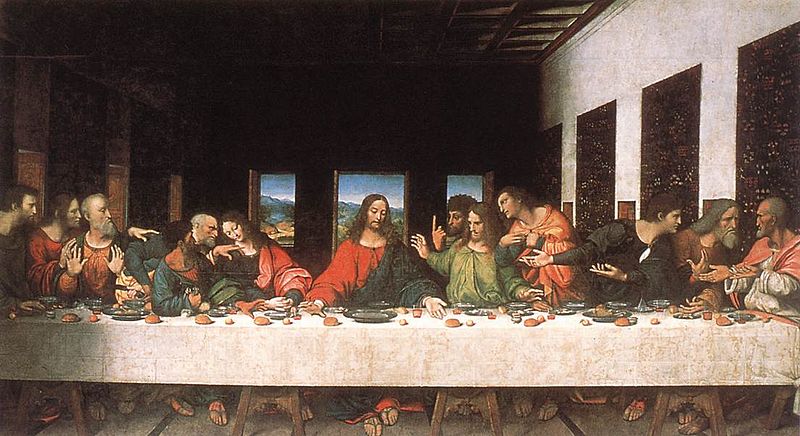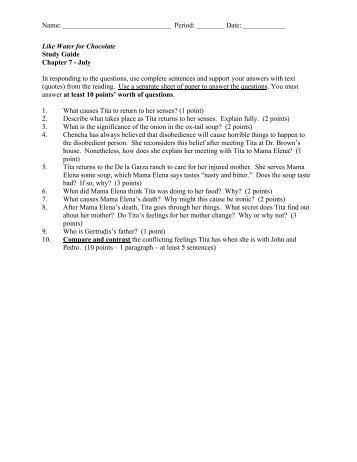Like Water For Chocolate Study Guide Answers
Discussion Question for Like Water for Chocolate. Pivotal points in the novel use magical realism to advance the story: otherworldly events are sandwiched between everyday, expected happenings. What effect does this mixture have on the story and on you as the reader? What is the author’s intention here?
To the PTPI Blog. Discussion Question for Like Water for Chocolate. Questions prepared by Matthew Hughes, Program Coordinator at PTPI. This study guide and infographic for Laura Esquivel's Like Water for Chocolate offer summary and analysis on themes, symbols, and other literary devices found.

Is this technique part of your culture’s storytelling heritage?. What does the Mexican Revolution, the setting for the novel, have to do with Tita’s story?
Would this novel have been as impactful if it had taken place at another time in history?. La Familia de la Garza, Tita’s family, is a meeting point for treasured tradition and daring exploration, where the constant tension seems to be how to honor the past while living in the present. Where and how do you see this tension in your family or community in 2014? What suggestions does the novel offer for resolving this tension?.
The Folger's offer a road map for using the Folger approach in the classroom. 
Discuss the different images of what it means to be a woman in society as represented by key characters in the story: Tita, Rosaura, Gertrudis, and Mama Elena. Which of these characters seem most in line with what society expects a woman to be, and which characters press social boundaries?.
What is the central conflict between Tita and her sister Rosaura? Is it really over a person, or is it deeper than that?. All three daughters leave home and return in this novel, but the impacts of leaving and returning are different for each daughter. What makes the difference? Have you been profoundly impacted by leaving and returning to your own culture or home community? If so, what made the difference for you and allowed you to grow?.
In October, Tita’s sister Gertrudis tells her, “The truth! Look, Tita, the simple truth is that the truth does not exist; it all depends on a person’s point of view.” Do you agree with Gertrudis’ assertion? Is truth relative and contingent on a person’s experiences? What does this mean for us in today’s globalized world?. Characters in this story move between two cultural landscapes—northern Mexico and southern Texas in the U.S. What challenges or advantages does this movement create?. It can be easy to relate to the protagonist (Tita) in a novel like this, but which other character speaks to your own experience in a significant way?
Does that character navigate situations as you would?. How would this story have been different if Tita had been the narrator? People to People International’s Global Book Club is a way to connect with your global community. Global Book Club members communicate about valuable, international topics and gain unique insight and understanding of various cultural views in relation to those topics. For more information on People to People International, visit www.ptpi.org. #globalbookclub The opinions expressed by PTPI staff and other book club members are entirely their own and are not necessarily the views of PTPI or its Officers, Board of Directors and Board of Trustees.
Like Water For Chocolate Study Guide Answers

Like Water’s Inspiration: The stories in Like Water for Chocolate were inspired by Esquivel’s experience growing up and her close relationship with the grandmother who taught her to cook. Many of the female character’s stories were inspired by stories passed down from her mother and other women in her life. In her memoir Between Two Fires, Esquivel discusses her own thoughts on the magical relationship between food and emotion through the lens of her own experiences. International Acclaim: Like Water for Chocolate was Mexico’s bestselling novel in 1990.
Like Water For Chocolate Book Pdf
Film: The novel was adapted to a Spanish-language film released in Mexico in 1992.